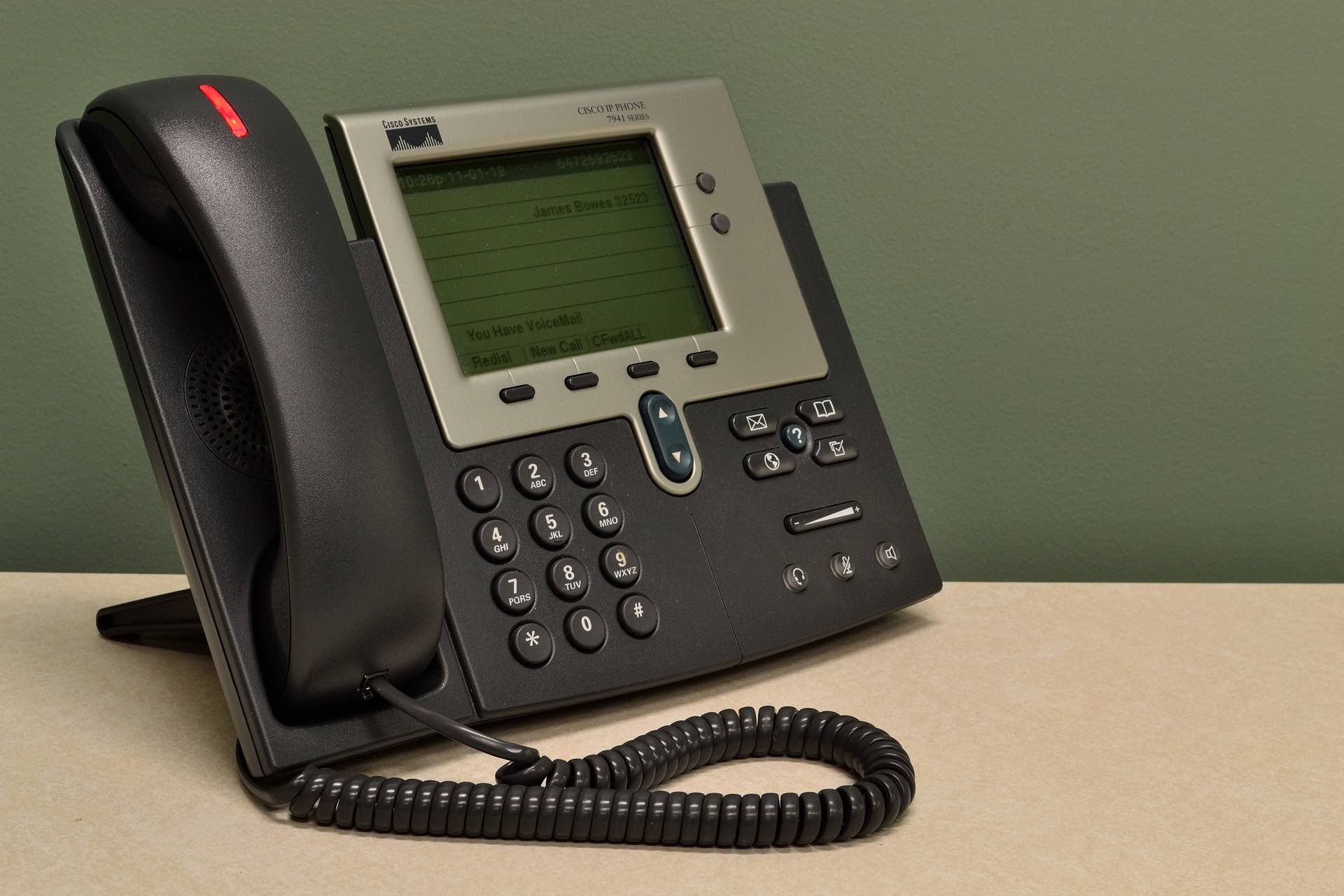Coaching your remote team can be a difficult task, there’s no doubt about it. Giving agents the correct information they need to know in order to be the best employees they can be is key to running a good team.
But what are some steps you can take to ensure your remote support team is being as productive as they can be? We will go over some best practices to ensure that your remote customer support team succeeds.
Hire the right people with the right qualities
Running a successful remote customer support team, or any remote team for that matter, all starts with hiring the right people.
When you’re not physically with your employees, it can be tough to understand their working styles, personalities and what motivates them.
Simply making sure you hire the right people is vital to the success of your business, so taking great care when interviewing and hiring for your remote team is very important.
One way to ensure you are hiring the right people for the job is to create a list of ideal characteristics that align with your company’s goals. Some good characteristics you should look for include:
- Self motivated
- Great communication
- Disciplined
- Team player
- Willing to learn
- Reliable
- Critical thinker
While this is just a small snippet of what types of traits make for elite remote employees, measuring these traits can get a little tricky, but luckily, there are some easy ways to sort out applicants right from the get go.
Having applicants complete assessments as part of the interview process is a great way to get the best of the best to apply. Believe it or not, lots of people don’t want to take the time to take a 30 minute personality test!
A test like the DiSC Assessment, or something similar, is a great way to gain better insight into how someone may fit in with your team before you even meet them.
DiSC Assessments are widely used by many companies. Often times, hiring managers want employees to complete a DiSC test when a candidate submits their initial application.
As stated before, this test not only weeds out those who are not even motivated enough to complete it but also shows what your leadership style is and what style of work best describes you.
Reviewing and possibly even interviewing under qualified candidates is not only a huge waste of time, but a waste of money as well.
Considering the hiring process can take a few weeks, wasting time on non-qualified applicants is not in the best interest of any party involved.
Why these qualities matter
Unfortunately, it’s very hard to find employees with all the desired traits.
However, if you can assemble a team with a majority of them, you’d be surprised how well everyone will work together.
People who are motivated are going to be better and more productive employees. Make sure your new hires have aspirations.
Working with people who have no dreams or aspirations can bring down the morale of your company, even if you’re working remotely.
You want your employees to be emotionally invested in your company. When employees care about their job and their colleagues, your productivity, customer happiness, and possibly even your company’s earnings will increase.
Why hiring the right people is important
Let’s face it, hiring new employees isn’t the most fun thing in the world. Sifting through hundreds of resumes isn’t the most fun task, and takes up tons of time.
Let’s say you end up hiring someone who isn’t a good fit. Not only can they negatively impact the overall morale of your team, but it can also hurt your business as well.
Other agents may have to pick up the slack, and accounts could be neglected because your remote agents simply don’t have time to help everyone.
Hiring is also a very costly process. Most people don’t even consider the time and expenses it takes to not only onboard a new employee, but properly train them as well.
Remote agents may need even more training, since it will likely be done via phone, VoIP phone, or webcam. It is simply more difficult to convey points to them than in person – but that doesn’t mean it’s a bad thing.
Remote workers are generally happier, and save your company money.
In some case studies, they have surveyed workers and they can save hundreds, if not thousands of dollars per year.
Not only will you save money on gas and other commuting expenses, but your company will save money as well. Being able to not have to buy larger offices can save thousands per employee over the course of a year.
But not everybody is cut out to work remotely. When working in customer support, you could receive hundreds of inquiries a day, through chat, social, or phone calls.
Being able to stay focused and get through these can be difficult for some, and easy for some.
According to a Dale Carnegie study, companies who have high engagement rates outperform those with low engagement by over 200%!
Imagine if your company outperformed your competitor by 200%! Sounds pretty great, right? Well lucky for you, we’re going to provide you with some of the top coaching tactics to increase employee engagement and ultimately make your remote team more productive!

Top coaching tips for increased productivity of your remote team
No matter how experienced an employee may be, chances are they will have a question or need some coaching at one point or another.
Making sure you’re in the know with all the best coaching tips and technologies cannot be emphasized enough. If you can’t keep up, you can be left behind.
Let’s take a look at some of the best coaching tips to ensure you have a productive team:
Set your expectations early
From the start, you have to be clear with what you expect of your employees.
While hiring the right people is a great first step to this, you still need to make sure everyone is on the same page.
Since you’re not going to have face to face meetings with your employees on a regular basis, you have to communicate what you expect, the quality you expect, and when you want it by very clearly.
Not only do you need to set broad expectations, but also consider setting individual expectations. Employees want to feel appreciated, and giving them individual attention with their own set of goals is a great way to make them feel valued.
Have reliable tools and software
Have you ever had a problem with some piece of technology you use at work?
Well, for non-remote workers, you can simply find your resident IT professional and your problem will likely be solved.
Well, it’s not that easy with remote workers. They have to be their own IT person if they work from home, so getting good software and equipment is a great way to limit frustration that may stem from technology.
If your employees are going to be taking calls all day, as most customer service reps probably do, knowing the best practices for remote call center agents is a must.
Additionally, having a good VoIP system (or call center software) to take calls on, you will have features such as call monitoring, recording, and metrics to track your conversations and create great customer experiences.
This is not only a great tool for your agents, but also a great coaching tool for managers.
You can listen to your employees interactions with customers and coach them in areas where they could improve. You can also listen to conversations as they happen and coach your employees with the call whisper feature that many call center software providers will offer.
Don’t micromanage your employees
Trust is very important when it comes to having remote employees. The last thing you want is a manager who is concerned that you aren’t getting your work done, regardless of what their metrics may be.
A Gallup study report that remote workers actually work four more hours than people who work on-site.
Turns out, people like knowing they are trusted to do their work, and will simply do it, no matter where they are located.
In some employee testimonials, people even say they are more willing to work outside normal hours or answer emails while on vacation, despite the fact that they may not be expected to.
Be an open communicator
This sounds simple, and we alluded to it earlier, but being open and honest, and communicating with your team is very important, especially with remote customer support teams.
You should be engaging with your team on a daily basis, whether it be via email, chat, or ideally, video conferencing. By constantly engaging with your remote employees, you will help them feel included and “in the loop”.
At least once a year, you should try to host your remote employees for a few days.
If you have a physical office location, fly them in and hold in-person training and team building sessions. If you don’t have a physical location, find a central location and host a retreat.
Even if it’s just a couple of days, your remote agents will love getting some face to face interaction with management and their colleagues alike. During these trainings, you can also host breakouts where you have one on ones with or small group meetings with your team.
Another tactic to help with effective communication amongst your remote workers is pretty simple: small talk. As silly as it sounds, think about how many times you engage in small talk with your fellow coworkers in your office.
Whether it’s chatting while getting coffee, going out to lunch, or just striking up a conversation, having “small talk” can help humanize people and you can get to know them much better.
Building rapport with every member of your team helps you gain a deeper understanding of who they are and what makes them “tick”. You will quickly pick up on subtle nuances in each employee, and in turn that will make you a more effective manager.
So next time you’re on a call with someone, chat for a few minutes as the call ends instead of just hopping off. That short conversation can go a very long way.
Establish a mission statement and core values
Most companies understand their ultimate goal, which is usually to provide top-notch customer experiences, or something similar to that. However, not all companies have a set of core values that really help drive the direction of the company.
Setting core goals helps everyone understand their place on the team. Show them the bigger picture, and why they are an integral part of the operation of the company.
This also goes back to hiring the right people. When you hire people who align with your companies values and goals, they will do their best to help the company grow.
Be sure to establish these early on, and make sure applicants understand them and see how they fit in.
Establish regular one-on-one meetings with your team
As mentioned before, communicating with your team daily is key. Sure, you probably have a group chat or group email thread going where you can reach out to everyone at once, but holding one on one meetings with your team reminds them that you care.
Whether it be once a week or once a month, block off some time to check in with everyone and listen to what they have to say. Whether it’s just them updating them on how their work week has been, or letting them bounce some ideas off you, having time to talk individually can go a long way.
Regular one on ones are also a great place for you to provide each agent with some individualized feedback. If you use tools like call whisper, barging, or recording, you can give some examples and use cases of things they’re doing well, and some tips on areas they can improve.
But be careful, you don’t want to come off as condescending or rude.
Focus on your teams goals, not busy work
As you probably already know, people work at different paces and in different ways. While yes, it is important to manage the expectations of your team, it is also important to focus on your overall team goals.
Take a step back a take a look at your overall teams accomplishments. If you are meeting your goals, then great. If not, perform an internal audit and see where the issues may lie.
It could be a very simple fix, such as fixing a process to make it more streamlined.
Typically, there will be some sort of operational inefficacies, so if you see them and they are causing a problem, be proactive and try to fix it before it gets worse.
Focus on their personal growth and career paths
Think back to some of your past jobs. Maybe even your first job. Chances are, it was some low paying part-time job, maybe in the service industry.
Do you think your manager really cared about your career growth and where you would be in 10 years? Sure, some may have, but there’s a good chance most of them could have cared less.
Be sure you really pull for your employees and their career growth. Let’s take a look at a scenario.
Let’s say one of your top performing employees just told you they’ve been interviewing for a job outside of your company. How would you react?
Sure, it would hurt to lose your best employee, but you should take that as a compliment to your management. You helped give them the tools, skills, and confidence to go out there and try to progress their careers.
Help them create a career path. When you see them starting to make strides in their work, such as handling more calls per day and having a shorter resolution time, sit down with them and let them know you noticed.
Give them advice, tell them mistakes you might have made, and just be a generally good source of knowledge and information. Nobody wants to feel stuck at a job, so this is a way of possibly alleviating those concerns.

Best metrics to monitor remote agent productivity
So you’ve gotten your agents feeling good about their job and properly trained. Now how exactly do you measure their productivity?
There are plenty of KPIs you can consider looking at when evaluating your teams success, so let us take a look at a few.
Average time in call queues
This one seems pretty obvious, but simply looking at the average time that callers spend in your agent’s queue is a great way to tell how they are performing.
Taking a look at these times is a great way to see if there are possibly any flaws in your training program, or if an employee has any knowledge gaps that you may need to fill.
Agent service level
Measuring one of your remote customer service agents service level can be tricky, but can be made easier with the use of scorecards. Agent scorecards are used to track things such as:
- Attendance
- Overall etiquette
- Problem solving ability
While this is just a snippet of what they can do, scorecards can be a great way to manage how your agents perform.
There are both automated and manual scorecards, as well.
Automated scorecards are a big time saver, as they can pick up on certain words and phrases and give alerts when they are said. This way, you can track individual metrics over time and see patterns, and if your agents are continually struggling with certain things more than others.
On one hand, it is much faster than a manual scorecard, where you have to actually listen to every conversation and grade each agent individually. However, since it is a computer program, it is far from perfect.
If your agent pronounces something differently or talks too fast, then the program may not accurately pick up on what was being said.
Average speed to answer calls
If you’re working as a remote customer service agent, you will have to be on top of answering calls in a timely manner. Put yourself in the customer’s shoes.
How many times have you called a help line only to be put on hold for half an hour, or even forgotten about entirely? Not being easily distracted, and really focusing when answering calls is a great way to ensure your average answer speed is low.
This can be tied back to the point we made earlier about getting good equipment and tools for your staff. Having a reliable VoIP or remote call center provider can help reduce these answer times.
Average time on calls
Measuring the average time a remote customer service agent spends on a call is an interesting metric to look at.
If they spend too much time on a call, they may not be resolving issues in a timely manner, which may mean they have some sort of knowledge gap that needs to be filled.
On the other hand, they may not spend much time at all on calls and power through tons of calls per day, while only spending an average of 1 minute on each call.
Chances are, there is no way they are able to solve all customer issues that quickly, and are likely not sufficiently answering all the customers questions. If you suspect that is the case, you can likely go into your CRM software and see if customers are calling in again to get questions answered.
Why does all this matter?
So you’ve just been overloaded with information, but here we will summarize some of the most important takeaways on why coaching your customer service team to increase productivity is important.
Reduced Attrition = Lower Costs and Higher Productivity
Reducing attrition and having a high productivity rate go hand in hand. It costs a lot of money and time to hire and onboard new employees, not to mention the blow to overall morale. This can also cause a reduction in productivity.
Drop-offs in productivity can send shockwaves throughout your company, causing uneasiness and tension. It turns into a vicious cycle that can be very difficult to break, but with the proper coaching, you can ensure your remote customer support teams productivity stays high.
There have been many studies linking increased productivity and working remotely. And if you take these steps to make sure your employees are valued and included, your team can accomplish some great things.
About The Author:



